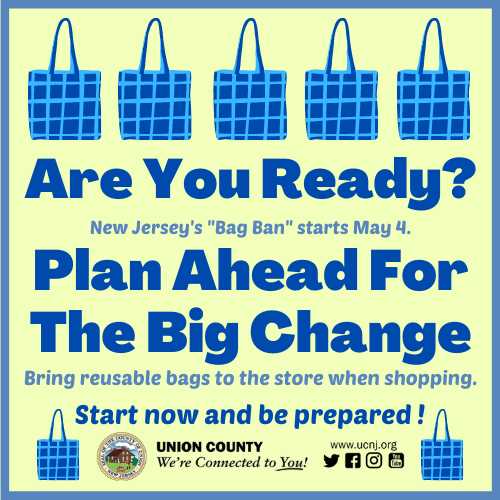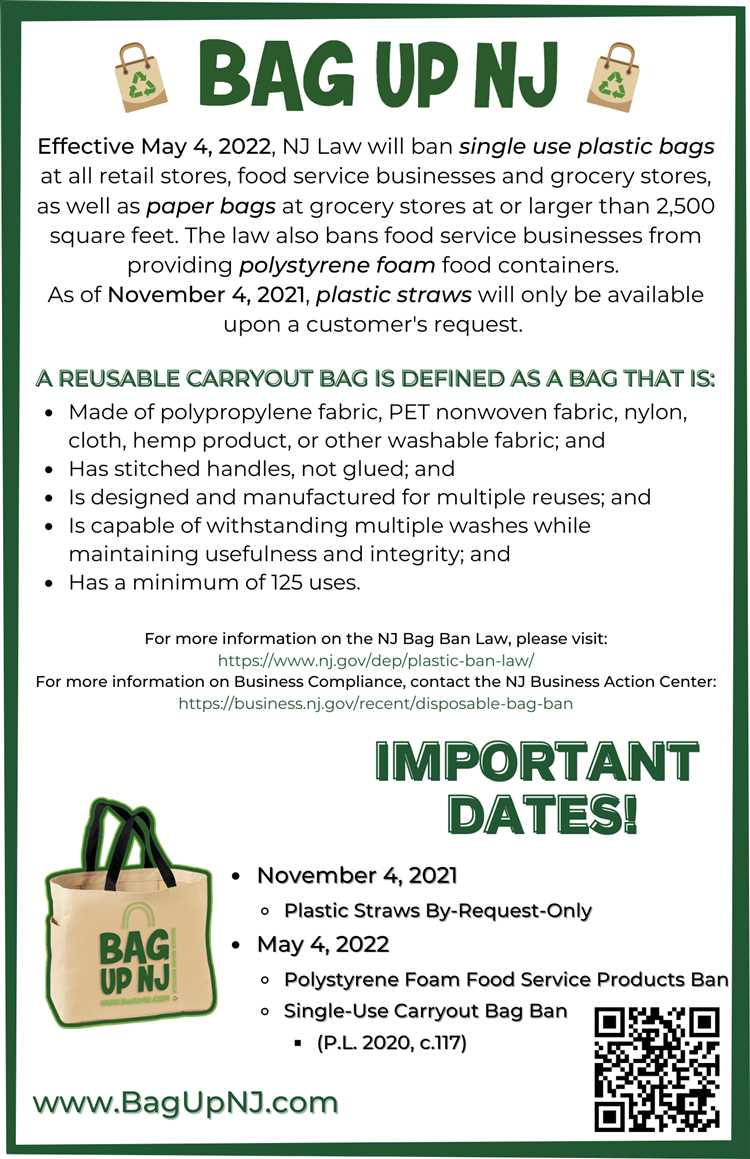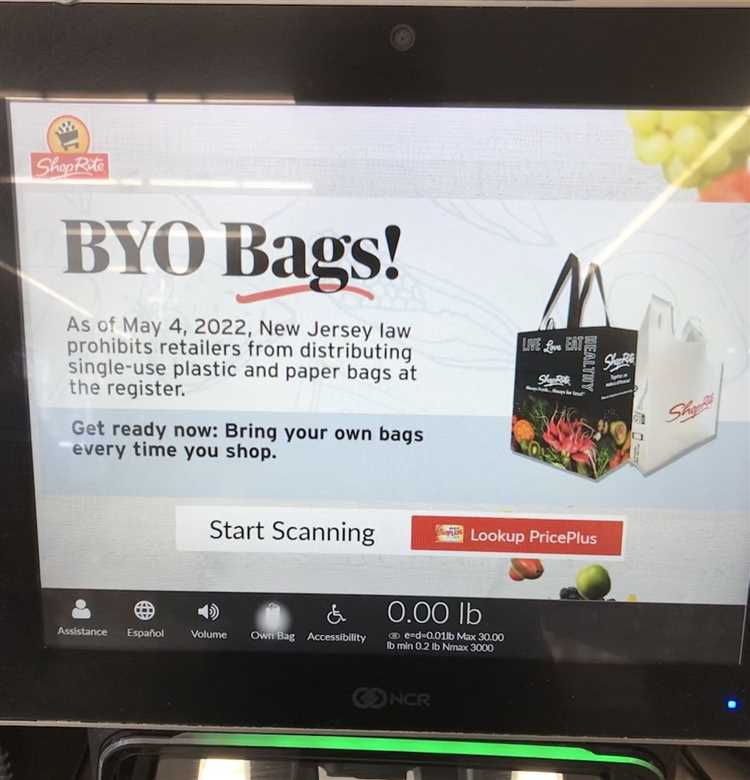Plastic bags have become a major environmental concern due to their detrimental impacts on ecosystems and wildlife. In an effort to reduce plastic waste, several areas in New Jersey have implemented bans on single-use plastic bags. These bans aim to encourage consumers to switch to more sustainable alternatives and promote a greener and more sustainable future for our state.
Currently, there are several areas in New Jersey that have implemented plastic bag restrictions, including cities and counties. For instance, cities like Hoboken and Jersey City have banned single-use plastic bags, requiring residents to bring their own reusable bags when shopping. Additionally, various counties, such as Bergen County and Monmouth County, have also implemented similar bans to reduce plastic waste in their communities.
It is important to note that while some areas have outright bans on plastic bags, others have implemented fees on single-use plastic bags to discourage their use. This approach aims to incentivize consumers to bring their own reusable bags or opt for eco-friendly alternatives, such as paper bags or biodegradable options.
By implementing these plastic bag restrictions, New Jersey is taking a step towards a more sustainable future. These bans not only reduce the amount of plastic waste ending up in landfills and waterways but also help raise awareness about the importance of mindful consumption and the need to protect our environment for future generations.
- Where are plastic bags banned in NJ?
- Discover the areas with plastic bag restrictions
- Bergen County
- Camden County
- Passaic County
- Monmouth County
- Penalties for Violations
- Impact of the Ban
- Q&A,
- Are plastic bags banned in all areas of New Jersey?
- Which areas in New Jersey have plastic bag restrictions?
- Why are plastic bags banned in some areas of New Jersey?
- What are the alternatives to plastic bags in areas with restrictions?
- Will there be penalties for using plastic bags in areas with restrictions?
- What areas in NJ have banned plastic bags?
- Why have these areas banned plastic bags?
Where are plastic bags banned in NJ?
In an effort to reduce plastic waste and promote environmental sustainability, several areas in New Jersey have implemented restrictions on the use of plastic bags. These bans aim to encourage residents and businesses to adopt more eco-friendly alternatives, such as reusable bags.
One of the regions in New Jersey with a ban on plastic bags is the Jersey Shore. Many beach towns, including Long Beach Island, Cape May, and Asbury Park, have implemented these restrictions to protect the local ecosystem and reduce litter on the beaches.
In addition to the Jersey Shore, several major cities in New Jersey have enacted plastic bag bans. Hoboken, for example, has prohibited the use of plastic bags in all retail establishments within its city limits. Jersey City and Asbury Park are among the other urban areas in the state that have similar bans in place.
Moreover, various municipalities within New Jersey have taken the initiative to enforce their own plastic bag bans. Montclair, Maplewood, and Teaneck are a few of the towns that have introduced local ordinances to reduce plastic bag usage and encourage sustainable practices.
Overall, the implementation of plastic bag bans in different parts of New Jersey reflects the state’s commitment to protecting the environment and reducing plastic pollution. These restrictions not only promote sustainability but also serve as a reminder for residents and visitors to be more mindful of their plastic consumption and explore alternative options.
Note: It is important to check the specific regulations and guidelines in your area to ensure compliance with local regulations regarding plastic bag bans.
Discover the areas with plastic bag restrictions
New Jersey has taken a step towards reducing plastic waste by implementing plastic bag restrictions in several areas. These restrictions aim to limit the use and distribution of single-use plastic bags, encouraging people to use more sustainable alternatives.
One of the first areas in New Jersey to ban plastic bags was the township of Teaneck. In 2020, Teaneck passed an ordinance that prohibits retailers from providing plastic bags to customers at the point of sale. This restriction applies to all retail establishments, including grocery stores, pharmacies, and convenience stores.
In addition to Teaneck, several other municipalities in New Jersey have also implemented plastic bag restrictions. The city of Hoboken, for instance, has banned the use of single-use plastic bags in retail establishments. The ban also applies to paper bags that do not meet specific environmental standards. Instead, residents are encouraged to bring their reusable bags or purchase them from local retailers.
Another area with plastic bag restrictions is the town of Maplewood. Since 2020, Maplewood has prohibited the use of single-use plastic bags in retail establishments larger than 2,500 square feet. This includes grocery stores, retail chains, and department stores. The goal of this restriction is to promote the use of reusable bags and reduce plastic waste.
There are several other areas in New Jersey that have implemented plastic bag restrictions, including Jersey City, Lambertville, and Montgomery Township. These restrictions vary in their scope and requirements, but they all share the common goal of reducing plastic waste and promoting sustainable alternatives.
With the growing awareness of the environmental impact of plastic bags, more areas in New Jersey are likely to adopt plastic bag restrictions in the future. These restrictions play a crucial role in protecting the environment and creating a more sustainable future.
Bergen County
Bergen County is located in northern New Jersey and is the most populous county in the state. It is also the first county in New Jersey to enact a plastic bag ban. The ban went into effect on January 1, 2020.
Under the plastic bag ban in Bergen County, retailers are prohibited from providing single-use plastic carryout bags to customers at the point of sale. Instead, customers are encouraged to bring their own reusable bags or pay a fee for paper bags. The goal of the ban is to reduce plastic waste and encourage sustainable practices.
The plastic bag ban in Bergen County applies to a wide range of businesses, including grocery stores, convenience stores, pharmacies, and other retail establishments. However, there are some exceptions to the ban. Certain types of plastic bags, such as those used for raw meat or seafood, are still allowed for health and safety reasons.
Violations of the plastic bag ban can result in fines for retailers. The county has implemented a three-step enforcement process, starting with warnings for first-time offenders, followed by fines for subsequent offenses. The fines can range from $500 to $1,000, depending on the number of violations.
Bergen County’s plastic bag ban is part of a larger effort in New Jersey to reduce single-use plastic and promote a more sustainable future. Other counties and municipalities across the state have also implemented similar bans or restrictions on plastic bags to combat plastic pollution and protect the environment.
Camden County

In Camden County, plastic bag restrictions have been implemented in several municipalities. One such municipality is Camden City, which passed an Ordinance in 2019 banning single-use plastic bags. The ban prohibits the use of thin, single-use plastic bags, and encourages the use of reusable bags instead. The aim of the ban is to mitigate the negative environmental impacts of plastic bags.
Another municipality in Camden County with plastic bag restrictions is Haddonfield Borough. Haddonfield passed a plastic bag ban in 2020, which went into effect in 2021. The ban includes a prohibition on single-use plastic bags, as well as a fee on paper bags in order to promote the use of reusable bags. Haddonfield’s ban aims to reduce litter and protect local wildlife.
Collingswood Borough is another municipality in Camden County that has implemented plastic bag restrictions. The borough passed an ordinance in 2018, banning single-use plastic bags. Collingswood encourages residents and visitors to use reusable bags and supports efforts to reduce plastic waste in the community.
These examples highlight the efforts of Camden County municipalities to reduce the use of single-use plastic bags and promote sustainable alternatives. By implementing plastic bag bans, Camden County is taking steps to protect the environment and create a cleaner, greener community for its residents.
Passaic County
Passaic County is a county in New Jersey that has implemented a ban on single-use plastic bags. The ban went into effect on January 1, 2022, and applies to all retail stores, including grocery stores, pharmacies, convenience stores, and other businesses that sell goods or products.
The aim of the ban is to reduce the amount of plastic waste in the county and to encourage residents to use reusable bags instead. It is part of a larger effort by the county to promote sustainability and environmental conservation.
Under the ban, retailers are no longer allowed to provide single-use plastic bags to customers at the point of sale. Instead, customers are encouraged to bring their own reusable bags or can choose to purchase paper bags or reusable bags from the store for a small fee. Retailers who fail to comply with the ban may face fines or other penalties.
The ban has been met with mixed reactions from residents and businesses in Passaic County. Some people support the measure and believe it will help protect the environment and reduce plastic pollution. Others have expressed concerns about the inconvenience of having to bring their own bags or pay for paper bags.
Overall, the plastic bag ban in Passaic County is an important step towards reducing waste and promoting sustainable practices. By encouraging residents to use reusable bags, the county hopes to create a cleaner and greener environment for future generations.
Monmouth County

Monmouth County is one of the thirty-three counties in New Jersey that has implemented a ban on plastic bags. The ban was put in place to reduce the environmental impact of single-use plastic bags and encourage the use of reusable alternatives.
The ban applies to all retail establishments, including grocery stores, convenience stores, pharmacies, and other businesses that sell goods or products. These establishments are no longer allowed to provide plastic bags to customers for carrying their purchases.
However, there are some exceptions to the ban. Plastic bags are still permitted for packaging loose items such as bulk grains, nuts, or produce. Additionally, plastic bags can be used for items that could potentially contaminate or damage reusable bags, such as raw meat or cleaning supplies.
Monmouth County residents are encouraged to bring their own reusable bags when shopping to help reduce waste and protect the environment. Many stores offer reusable bags for purchase, and some even provide incentives or discounts for customers who bring their own bags.
Penalties for Violations

Businesses that fail to comply with the plastic bag ban in Monmouth County may face penalties. The county has established a progressive fine structure for violations, with increasing fines for repeat offenders.
Impact of the Ban

The plastic bag ban in Monmouth County has been successful in reducing the use of single-use plastic bags. Since its implementation, there has been a noticeable decrease in plastic bag litter and waste in the county. This has resulted in a cleaner environment and a positive contribution to overall sustainability efforts.
| Allowed | Not Allowed |
|---|---|
| Reusable bags | Plastic bags for carrying purchases |
| Plastic bags for packaging loose items | Plastic bags for non-packaged items |
| Plastic bags for potentially contaminating items | Plastic bags for general use |
Q&A,
Are plastic bags banned in all areas of New Jersey?
No, plastic bags are not banned in all areas of New Jersey. However, there are certain areas that have implemented plastic bag restrictions.
Which areas in New Jersey have plastic bag restrictions?
Some of the areas in New Jersey that have plastic bag restrictions include Jersey City, Hoboken, and Asbury Park. These cities have implemented bans on single-use plastic bags in order to reduce pollution and encourage the use of reusable bags.
Why are plastic bags banned in some areas of New Jersey?
Plastic bags are banned in some areas of New Jersey in order to reduce environmental pollution. Single-use plastic bags are not biodegradable and often end up in landfills or as litter, causing harm to wildlife and ecosystems. By implementing bag restrictions, these areas aim to promote the use of reusable bags and reduce the amount of plastic waste.
What are the alternatives to plastic bags in areas with restrictions?
In areas with plastic bag restrictions, residents and visitors are encouraged to use reusable bags as an alternative to plastic bags. These can be made of cloth, canvas, or other durable materials. Additionally, some stores offer paper bags as an alternative to plastic.
Will there be penalties for using plastic bags in areas with restrictions?
Yes, there may be penalties for using plastic bags in areas with restrictions. The specific penalties vary by location, but they can include fines for both retailers and individuals who violate the regulations. It is important to familiarize yourself with the local laws and regulations in order to avoid any penalties.
What areas in NJ have banned plastic bags?
Several areas in NJ have banned plastic bags, including Hoboken, Jersey City, and Sea Isle City.
Why have these areas banned plastic bags?
These areas have banned plastic bags to reduce plastic waste and protect the environment. Plastic bags can take hundreds of years to break down and often end up in landfills or as litter in waterways, harming wildlife and ecosystems.
